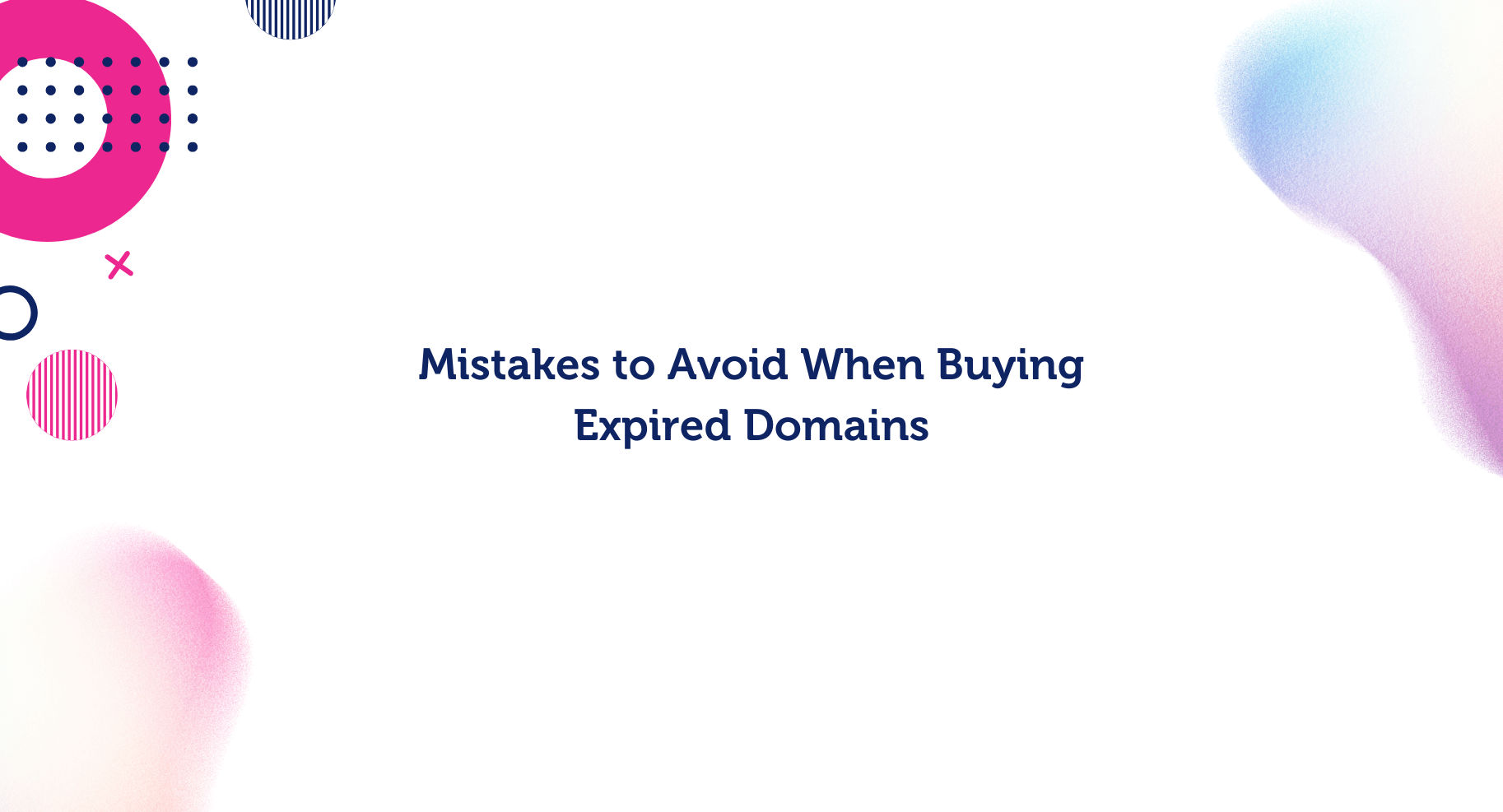Purchasing expired domains is the best way to jump-start a private blog network without waiting for brand-new domains to gather authority. When selected carefully, expired domains can provide immediate benefits to a new or existing network.
However, the process of vetting expired domains goes beyond finding an appealing name or looking for high-number metrics. Instead, it requires a comprehensive analysis of the domain’s past performance.
This article will guide you through the most common mistakes to avoid when buying expired domains:
Overlooking Domain History
Every expired domain has a history and potential penalties that may impact its future performance. Even if a domain looks clean at first glance, it may have a hidden past of spammy practices, such as being used for adult content, which could affect its reputation and SEO performance. While Google typically treats re-registered domains as new, a domain with a poor backlink profile may struggle to rank. Additionally, if the domain name includes a registered trademark, you could face legal disputes or lose ownership.
How to Avoid This Mistake
- Check the Wayback Machine (Archive.org): Review past snapshots to ensure the domain wasn't used for spam or malicious purposes.
- Use SEO Tools: Platforms like Ahrefs or SEMrush can reveal traffic history and sudden drops that may indicate penalties.
- Google the Domain Name: Search for the domain in quotes to uncover any complaints or negative mentions.
- Verify Brand Issues: A quick check can help avoid trademark conflicts that might lead to legal trouble.
Skipping this research could lead to wasted investment. So, take the time to investigate before making a purchase.
Prioritizing Domain Age
An older domain is not automatically a better domain. Age can correlate with authority, but it can also mean the domain went through multiple owners, multiple rebrandings, or extended periods of inactivity. Don’t assume a domain from 2005 is “premium” if it lacks a history of valuable backlinks and high-quality content.
How to Avoid This Mistake
- Look at Registrations and Drops: Check how often the domain has been dropped or re-registered. A domain that’s been dropped multiple times often comes with questionable SEO value.
- Focus on Quality Over Age: High-quality domains can be relatively new but still have a strong track record of legitimate backlinks. Conversely, an older domain with no real SEO foundation may offer limited benefits.
- Evaluate Historical Traffic: A quick glimpse into the domain’s historical traffic (using SEO tools) can show if it ever had real momentum.
Remember that while domain age can be a nice bonus, it’s far from the most critical factor in determining a domain’s worth.
Overreliance on One Marketplace
Not all domain marketplaces are created equal. Some specialize in higher-quality domains, while others offer mostly spammy, low-value options. If you always buy from the same platform without diversifying your sources, you might miss out on hidden gems or end up with subpar domains.
How to Avoid This Mistake
- Explore Multiple Platforms: Check platforms like GoDaddy Auctions, Odys Global, and private broker listings. Each marketplace has its own set of offerings.
- Stay Informed: Keep track of new domain auction sites or brokers. You never know when or where a high-quality, niche-relevant domain might appear.
A broader net catches a wider variety of fish. The same principle applies to domain hunting: diversification of sources generally leads to better finds.
Paying Too Much
Domain auctions can become bidding wars, making it easy to overpay for a domain that might not justify its final price. While some flaws can be overlooked, a high price tag isn’t always worth it if the domain has a weak backlink profile or a questionable history that could limit its effectiveness.
How to Avoid This Mistake
- Set a Budget and Stick to It: Determine the maximum you will pay for a domain based on its backlink quality, relevance, and potential ROI.
- Compare Similar Sales: Look at domain marketplaces and auctions to see how comparable domains (in terms of age, authority, and niche) are priced.
- Be Prepared to Walk Away: If the bidding surpasses your threshold, let it go. Another opportunity will come along.
Remember, even the best domain won’t singlehandedly guarantee top rankings. It’s more important to find a reasonably priced option that you can build upon sustainably.
Lacking a Clear Strategy
If you are buying an expired domain, it’s wise to know exactly what you want to do with it. Will you:
- Build a content site and and link to your money site?
- Use it as a 301 redirect to boost the authority of your target domain?
- Hold it as an investment and sell it in the future?
Each strategy comes with its own set of considerations. For example, if you plan to use a 301 redirect, the domain should have a strong backlink profile, relevant niche alignment, and no history of penalties to pass authority effectively. If you're building a content site, check for indexation issues, past use cases, and the potential for organic traffic growth. Even domains held for resale should be evaluated for market demand and historical value to ensure a worthwhile investment.
Final Thoughts
By avoiding the mistakes outlined above - overlooking domain history, skipping backlink analysis, ignoring spammy content, and overspending - you’ll greatly increase your chances of finding a domain that delivers real value. Think of buying an expired domain like purchasing real estate. You wouldn’t buy a building without evaluating its foundation, location, and structural integrity. The same principle applies here: do your due diligence, compare multiple options, and plan for a future that sets the domain (and your website) up for lasting success.
Once you’ve acquired a domain, hosting it on a reliable platform like Priority Prospect helps maximize its potential. A strong hosting setup ensures stability, security, and proper IP diversification - key factors for maintaining a healthy PBN and avoiding footprints.




